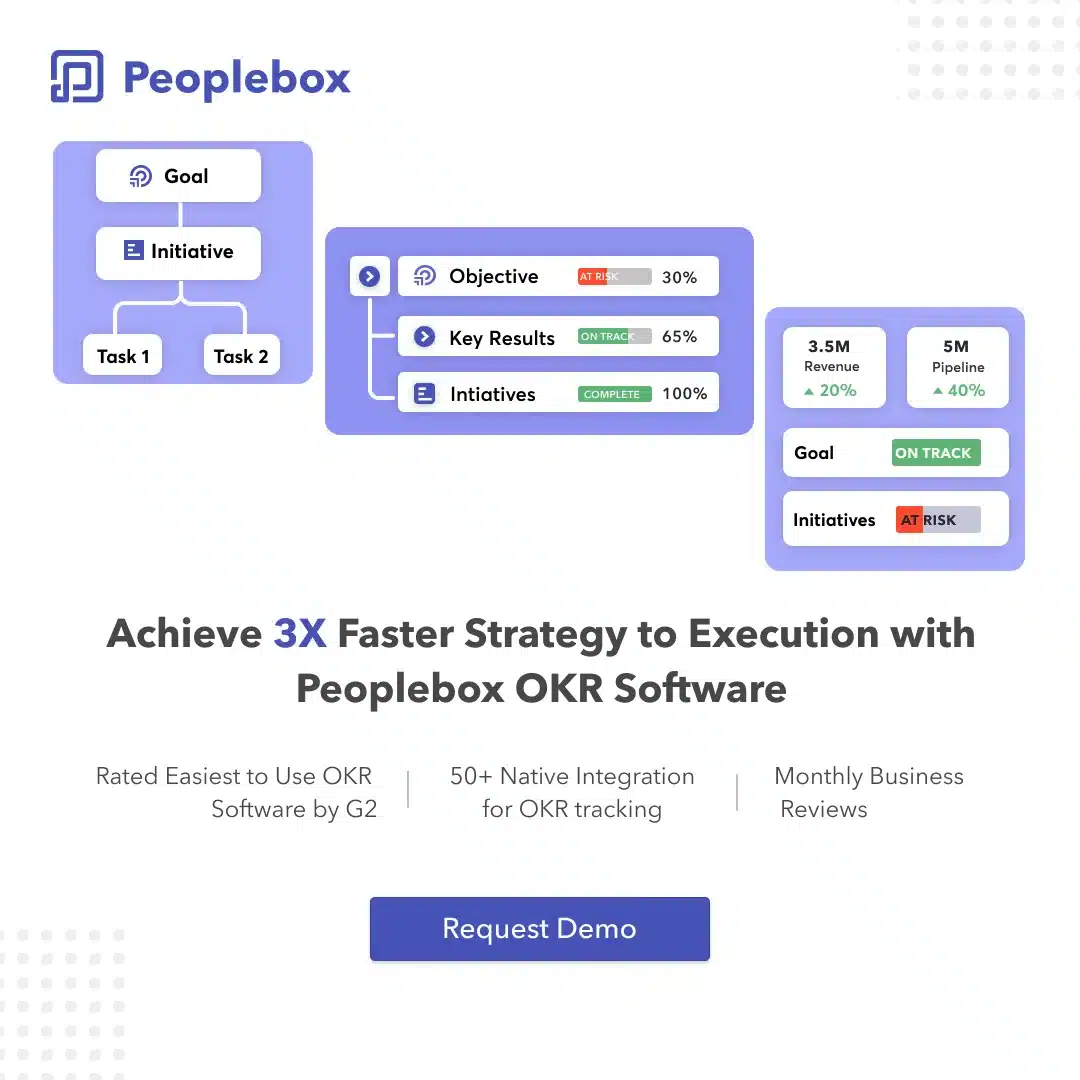Strategies are not events. They need to be executed, acted upon, and integrated into the functioning of your organization. Read this blog to know the secrets to successful strategy execution.
Surprisingly, 90 percent of organizations fall flat to reach their strategic plans.
The reason is a huge gap existing between their strategic planning and strategy execution.
Startups, especially at the growing stage, spend a considerable amount of time money, and energy defining the company’s strategy.
But when it comes to execution, 50 percent of them fail within five years.
But why? Why do these startups fail to execute even with impeccable strategical planning?
The answer varies from one organization to another.
Some startups fail to execute because of poor leadership. Some for lack of communication, commitment, resources, clarity, or budget.
While some others fail due to internal resistance, insufficient management, and organizational complexities.
And the result is a lack of direction and delegation, frequently missed deadlines, poor performance, and downward progression.
And finally ends up where they started.
What successful strategy execution means?
Successful strategy execution stands for the proper implementation of your strategic plans and turning them into action to achieve your goals.
It involves aligning daily organizational operations, decision-making frameworks, internal processes, and business structures such as forming an LLC with the help of the best LLC services. Which not only offers liability protection but also affects how your business is taxed and managed, which can significantly influence the success of your strategy execution.
In fact, in recent studies, researchers have emphasized the importance of strategy execution more than planning the strategy itself.
Do you know how to change your strategies into operational terms?
Are you and your teams well equipped for a successful strategy execution of the plans you’ve crafted?
Did you answer ‘No’?
Not anymore. Because we are here to help you.
The secrets to successful strategy execution

1 Measure and Monitor Performance
You can’t successfully execute your strategies if you don’t understand your progress, weaknesses, and shortcomings.
It is why monitoring progress towards achieving the goals and measuring your achievement is important.
Everyone should have the matrics in hand to measure the key drivers of their performance and the business in general.
They need Matrics to understand how their day-to-day choices are impacting the company’s overall success
Knowing the numbers will allow your teams to keep track and make changes if needed based on that data.
2 Communicate Clearly to Empower Employees
Everyone in your start-up should have a clear idea of the decisions and actions they are responsible for.
In a study, 71% of respondents from companies good at execution agreed on this fact.
Successfully strategy implementation will depend on your employee’s performance, task management, and decisions.
Thus every individual in your start-up should know their responsibilities and decision rights. Communicate with them about how their roles make your organization achieve its goals.
3 Balance Innovation and Control
“Innovation is the only way to win”-Steve Jobs
To foster better innovation in your organization, create a system to assess the challenges and opportunities.
It will also help you to maintain control over the performance and drawbacks.
Motivate your teams to experiment, share ideas and take calculated risks.
Allocate clear responsibilities to individuals in carrying out implementation activities.
This will allow you to measure, and control progress at your organization.
4 Proper flow of information

Your employees are the ones who will translate your strategies into action.
To help them do it the right way you need to provide them with all the necessary information and resources at the right place and time.
All important information needs to lo flawlessly horizontally and vertically at all levels of the organization to ensure better collaboration and smooth functioning.
In a research, 55% of respondents from companies with strong execution agreed that information at their companies flows across organizational boundaries.
When transparency is maintained, your teams will have insights into your startup’s challenges and failures.
The understanding of the impact of their performance on the overall success and reputation of the organization will further foster accountability.
5 Constant communication and synchronization
If you are a growing startup you are likely to expand your teams and departments at a very fast pace.
To maintain successful strategy implementation synchronization at all levels will become necessary along with a proper communication system.
Strategies are adapted and can take different shapes across the journey.
If you want your employees to adapt their roles and responsibilities accordingly, foster communication at your startup through regular meetings, check-ins, and feedback.
Synchronizing teams will also save your teams from drifting away from priorities.

How can OKRs help in successful strategy execution?
OKRs can give your startup the focus and direction to convert your goals into reality. OKRs are an all-in-one framework to help you design and execute your strategies.
Click here to read about how to set a complete OKR process
1 Set strategic goals and turn them into operational realities
OKRs provide defined objectives and clear goals, tasks, and responsibilities for every individual in the organization. And transforms these objectives into measure key results.
Set milestones make measuring the progress of the strategy implementation easy to monitor.
2 OKRs are measurable
OKRs make your success measurable. You can set a OKR tracking system and monitor individual performances and how far the goals have been achieved.
It will also help you evaluate and assess whether adjustments are necessary or whether a new strategy is needed.
It will also help you get rid of any problem that may hinder your strategic implementation.
3 Brings Transparency
OKRs will help you create a transparent culture in your organization.
This will ensure a smooth information flow across all levels of the organization.
It makes sure that everyone knows what’s expected of them and how their roles are contributing to the larger organizational success.
When everyone knows who is doing what and when it inculcates accountability.
4 OKRs invite innovation with stretched goals
OKRs help you specific, ambitious, and realistic goals to encourage the best performance from your teams.
It also provides your teams with challenges and helps them increase productivity and engagement.
5 Gives you control
Regular OKR check-ins, provide you with the opportunity to control issues when they are sprouting.
OKRs also create a sense of urgency because of their time-bound nature.
Thus you have control over how much you want to and can achieve within a specific period.
Conclusion:
Execution is seemingly difficult. In a study, respondents from three out of every five companies said that their organization was ‘weak at execution’.
OKRs can be your weapon to bridge the gap between strategy and execution. The OKR framework doesn’t only help you to execute your strategies.
It also helps you to make execution a part of your organization’s work culture.
Taking your startup to new heights is not a random walk. You need a balance combination of strategies and execution for that.
To sum it up, successful strategic execution doesn’t entirely depend on your organizational structure and function.
Have you already set your organizational goals and strategic plans?
If yes, it’s time to use the secrets to successful strategy execution now and take your growing startup among the top business standards.






